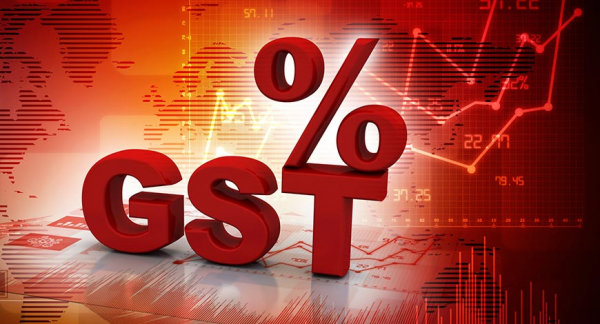GST Council Likely to Consider Lowering Tax on Online Food Delivery Fees
Considerations for the GST Council The GST Council, comprising finance ministers from all states and chaired by the Union Finance Minister, meets periodically
- by B2B Desk 2024-12-17 08:26:30
In a significant move that could impact millions of consumers and numerous businesses, the GST Council is likely to consider lowering the Goods and Services Tax (GST) on online food delivery fees. This decision aims to provide relief to both consumers and the food delivery industry, which has seen a massive surge in demand, especially during the COVID-19 pandemic.
Current GST Structure on Online Food Delivery
Currently, online food delivery services in India are subject to an 18% GST. This tax is levied on the total amount charged by food delivery platforms like Swiggy, Zomato, and others. The tax applies to the delivery fee and the cost of food items ordered.
Potential Impact of GST Reduction
-
Consumer Benefits Lowering the GST on online food delivery fees would directly benefit consumers by reducing the overall cost of their orders. This reduction could make online food delivery more affordable, encouraging more frequent usage among customers.
-
Boost for the Food Delivery Industry The food delivery sector has been one of the few industries to experience significant growth during the pandemic. However, the high GST rate has been a point of contention. A reduced GST rate could help these companies improve their profit margins and potentially pass on the savings to consumers.
-
Support for Small and Medium Restaurants Many small and medium-sized restaurants rely heavily on online food delivery platforms for their business. Lowering the GST on delivery fees could help these restaurants attract more customers by offering more competitive pricing, thereby increasing their sales and revenue.

Considerations for the GST Council
The GST Council, comprising finance ministers from all states and chaired by the Union Finance Minister, meets periodically to discuss and decide on changes to the GST regime. In considering a reduction in GST for online food delivery fees, the Council will need to balance the potential revenue loss against the broader economic benefits.
-
Revenue Implications Reducing GST rates could lead to a decrease in tax revenue from the food delivery sector. The Council will need to evaluate whether the potential increase in transaction volumes can offset this loss.
-
Economic Stimulus Lowering GST on food delivery could act as an economic stimulus, encouraging consumer spending and providing a much-needed boost to the hospitality and food service industries.
-
Administrative Adjustments Implementing a new GST rate would require updates to the billing and tax collection systems of food delivery platforms. The Council must consider the administrative readiness of these platforms to adapt to the change smoothly.
Industry Response
The food delivery industry has welcomed the potential move, with industry leaders expressing optimism about the positive impact on business operations and consumer engagement. Many stakeholders believe that a reduced GST rate could lead to a surge in orders, helping the industry recover from the economic disruptions caused by the pandemic.
Conclusion
The GST Council's decision to consider lowering the tax on online food delivery fees reflects a proactive approach to supporting an industry that has become an integral part of urban living. If implemented, this move could lead to lower costs for consumers, higher revenues for restaurants, and a more vibrant food delivery market in India. As the Council deliberates, stakeholders across the board will be watching closely to see how this potential policy change unfolds.
Also Read: How to Build a Diversified Mutual Fund Portfolio in 2025
POPULAR POSTS
GST 2.0 Rollout Begins: New 5% & 18% Tax Slabs, Cheaper Essentials, and Helpline 1915 Explain
by Shan, 2025-09-22 10:20:19
GST Overhaul Explained: New 5% and 18% Slabs, 40% Tax on Luxury Goods
by Shan, 2025-09-04 11:53:34
Modi’s Diwali Gift: New GST Rates Slash Prices on Electronics, FMCG & More
by Shan, 2025-08-21 12:28:30
Jio Finance Launches Income Tax Filing at ₹24: How to File ITR Easily in 2025
by Shan, 2025-08-13 10:08:52
Income Tax Bill 2025: Lok Sabha Panel Backs Deductions for Late Filers
by Shan, 2025-07-22 12:28:58
Karnataka GST Crackdown: Why Shopkeepers Are Ditching UPI Payments
by Shan, 2025-07-16 12:14:56
GST on Cigarettes, Tobacco, and Aerated Beverages Likely to Be Hiked: New 35% Slab Proposed
by B2B Desk, 2024-12-03 11:18:47
RECENTLY PUBLISHED

Loan EMIs to Drop as RBI Slashes Repo Rate - Full MPC December 2025 Highlights
- by Shan, 2025-12-05 11:49:44

Pine Labs IPO 2025: Listing Date, Grey Market Premium, and Expert Outlook
- by Shan, 2025-11-05 09:57:07

The Agentic Revolution: Why Salesforce Is Betting Its Future on AI Agents
- by Shan, 2025-11-05 10:29:23

Top 10 Insurance Companies in India 2026: Life, Health, and General Insurance Leaders Explained
- by Shan, 2025-10-30 10:06:42

OpenAI Offers ChatGPT Go Free in India: What’s Behind This Big AI Giveaway?
- by Shan, 2025-10-28 12:19:11

Best Silver Investment Platforms for 2025: From CFDs to Digital Vaults Explained
- by Shan, 2025-10-23 12:22:46




 Subscribe now
Subscribe now 